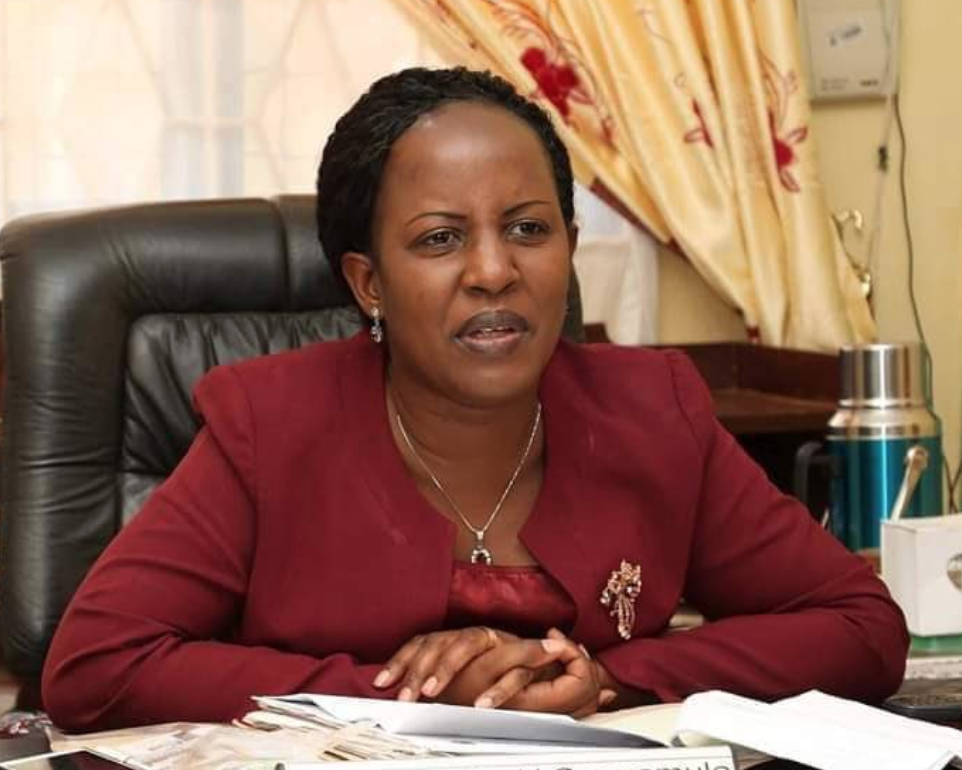DODOMA, Tanzania –
Dodoma Regional Commissioner (RC), Ms Rosemary Senyamule has been rooting for for accelerating economic development in the region, focusing on agriculture as the driving force.
Recognizing the pivotal role of agriculture in the region’s economy, Ms Senyamule has spearheaded governments initiatives to propel economic growth and uplift the livelihoods of Dodoma residents. With a resolute determination to eradicate poverty and create sustainable economic opportunities, she has emphasized the need to maximize the agricultural sector’s potential.
As the backbone of Dodoma’s economy, agriculture provides a livelihood for a significant majority of its population. Understanding this critical dependency, Ms Senyamule has called for concerted efforts to harness the full potential of agriculture, viewing it as the key catalyst for economic transformation.
Under her leadership, Ms Senyamule has rallied extension officers and stakeholders to work diligently in implementing strategies that drive agricultural productivity, innovation, and market development.
With a staggering 80 percent of Dodoma’s population dependent on agriculture for their livelihoods, she underscored the urgency of fostering its growth to eradicate poverty.
“Dodoma region’s economic status, both at the national level and for individuals, indicates a pressing need to assist our farmers in increasing productivity and output,” emphasized Ms Senyamule during a recent address.
Highlighting the untapped potential within the agricultural and livestock sectors, she stressed the necessity of strategic planning to optimize productivity and capitalize on available opportunities. District extension officers were tasked with crafting comprehensive work plans and strategies focusing on food security, economic development, and employment generation.
“I expect to review your work plans, detailing how you will implement productive agricultural activities in your districts. Don’t solely rely on the ministry’s strategy; utilize your creativity to develop customized plans that prioritize crops like sorghum, sunflower, and grapes,” instructed Ms Senyamule.
Additionally, she emphasized the importance of establishing demonstration farms to provide tangible examples for citizens, enabling them to witness and adopt best agricultural practices.
Underlining her commitment to agricultural advancement, RC Senyamule mandated all schools in Dodoma to allocate land for cultivating sorghum in their farm areas. This initiative aims to offer students hands-on learning experiences while simultaneously promoting the cultivation of sorghum.
Supporting Ms Senyamule’s vision, Dodoma Regional Administrative Secretary (RAS) Ms Fatuma Mganga emphasized the need to accord the agricultural sector the same level of emphasis as other vital sectors, such as education.
Recognizing the vast growth opportunities, World Food Organisation (WFP) Project Manager, Mr Abiud Gamba, highlighted Dodoma’s favourable climate and the presence of a reliable market, particularly for sorghum production. Mr Gamba revealed that Sudan alone has an annual demand of 200,000 tonnes of sorghum, far exceeding current production levels in Dodoma. In 2021, Dodoma produced a mere 46,988 tonnes of sorghum, representing less than a quarter of Sudan’s requirements.
Providing further insight, Mr Gamba detailed the sorghum production figures, revealing that Kongwa produced 11,667 tonnes, Bahi 4,892 tonnes, Chamwino 5,686 tonnes, Chemba 0 tonnes, Kondoa 2,951 tonnes, and Mpwapwa 21,796 tonnes.
Drawing attention to the economic viability of sorghum, Mr Gamba stated, “If taken seriously, sorghum has the potential to significantly increase the income of the people and the overall prosperity of the Dodoma region.” He also highlighted the availability of quality seeds from the Tanzania Agricultural Research Institute (TARI) and the expertise of 19 local farmers specializing in producing high-quality sorghum seeds.
